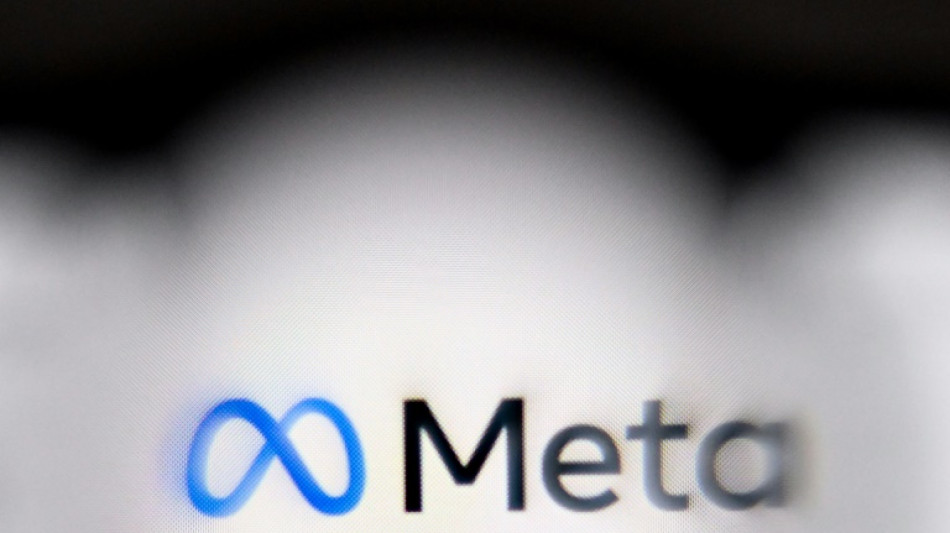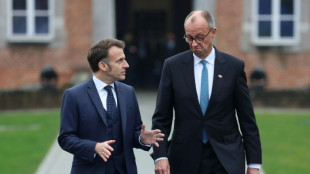
US rests case in landmark Meta antitrust trial

The US government rested its case against Facebook-owner Meta on Thursday, as it tries to persuade a US judge that the tech giant bought Instagram and WhatsApp to neutralize them as rivals.
The landmark case, brought by the Federal Trade Commission, could see Meta forced to divest itself of the two apps, which have grown into global powerhouses since their buyouts.
The trial, held in a federal court in Washington, is presided over by Judge James Boasberg who will decide the outcome of the case.
At the heart of the antitrust battle is the question of whether the crucial ingredient that undergirds Meta's success is its ability to make connections between friends or family across its apps.
The argument -- that real-life connections are the glue that make Facebook's apps successful -- is the foundation of the government's argument that describes a world where only youth-targeted Snap is a credible, if very distant, rival.
Meta counters that its rivals are YouTube and TikTok and that it competes furiously in a much wider and ever-changing market to capture the eyeballs and attention of the world's users.
The trial, expected to continue for several more weeks, has seen top Meta executives take the stand, including founder and CEO Mark Zuckerberg and former Meta chief operating officer Sheryl Sandberg.
Much of the testimony has been devoted to government lawyers building their case that Facebook and its family of apps constitute a market that is distinct from TikTok and YouTube, apps where personal connections have very little impact on usage.
The US government argues that Meta's hold on friends and family offers a unique ability to build out its products and rake in billions of dollars in profits every quarter.
As a sign of the monopoly, the government also points to widespread reports of customer dissatisfaction with Meta products but continued success and growth of its apps.
Meta executives argue that its apps are facing major headwinds and that calling them a monopoly is wrong.
On the government's last day of calling its witnesses, the head of Facebook, Tom Alison told the court the company is in an "upheaval," facing generational changes in online habits as young users prefer TikTok-style short video content over sharing pictures and text.
"The reality is that Facebook was built 21 years ago and Gen Z users have different expectations," Alison said.
But the government believes that Facebook's hold on friends and family shields its business from swings in the market and that it bought Instagram and WhatsApp, in 2012 and 2014 respectively, to remove potential threats to its dominance.
- 'Failed' -
Testimony in the past weeks has included revelations by Kevin Systrom, the founder of Instagram, that he felt that Zuckerberg had undermined the success of his photo-sharing app in favor of Facebook once he was bought out.
This seemed to back the government's argument that the purchase of Instagram was originally intended as an effort to remove a potential rival, before it became successful in its own right.
Meta on Thursday began calling its own list of witnesses, beginning with executives from Snap.
"After five weeks of trial, it is clear that the FTC has failed to meet the legal standard required under antitrust law," a Meta spokesperson said in a statement.
"Regardless, we will present our case to show what every 17-year-old in the world knows: Instagram competes with TikTok (and YouTube and X and many other apps)," Meta added.
B.Turner--SFF

 London
London

 Manchester
Manchester
 Glasgow
Glasgow
 Dublin
Dublin
 Belfast
Belfast
 Washington
Washington
 Denver
Denver
 Atlanta
Atlanta
 Dallas
Dallas
 Houston Texas
Houston Texas
 New Orleans
New Orleans
 El Paso
El Paso
 Phoenix
Phoenix
 Los Angeles
Los Angeles


